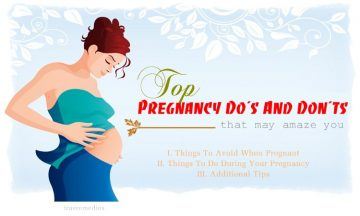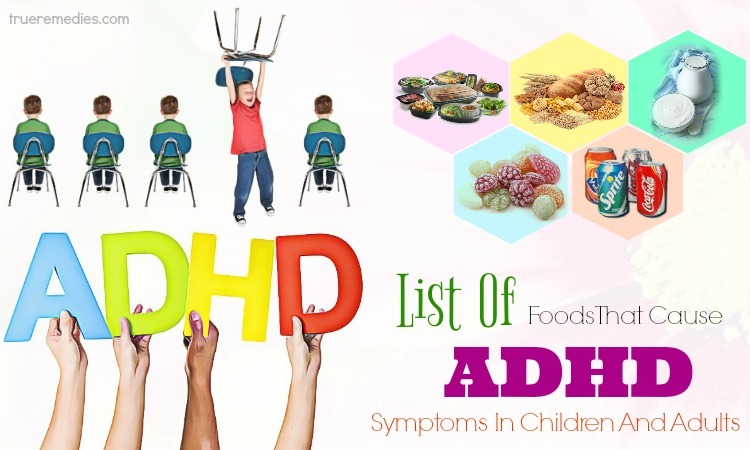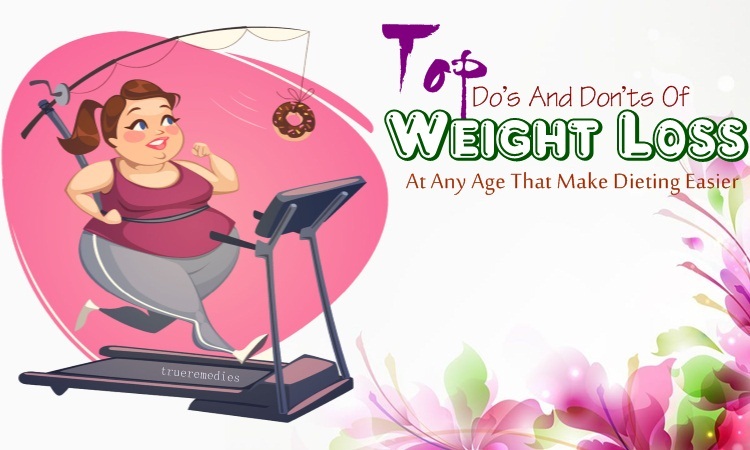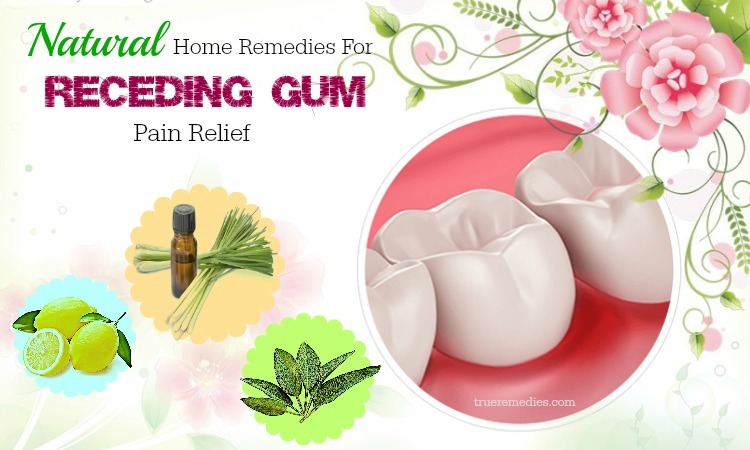Table of Contents
Pregnancy brings in lots of psychological and physiological changes in women. If you are pregnant, you are certainly careful about things not to do and to do. You are in the right place. In this article, we will mention to you a list of pregnancy do’s and don'ts parents should know. This list will help you know about things to avoid and include during the nine months or three trimesters. Let’s get started!
- Worst fruits to avoid during pregnancy
- What to eat when pregnant
- How To Be A Happier Mom: 9 Science-Backed Secrets At Home. (Medically reviewed/fact checked by Robi Ludwig, Psy.D., LCSW)
Top 18 Pregnancy Do's And Don'ts Parents Must Know
I. Things To Do During Your Pregnancy
1. Do Sleep As Much As Possible
During your pregnancy, changing hormone levels, anxiety, and anticipation can make your sleep elusive. Pregnancy is demanding, and you will need your sleep[1]. If you feel tired or fatigued, take a quick nap. Fatigue is a sign that the body needs more rest, and hence, you need to give yourself all the sleep you can. It’s recommended to sleep at least 7 to 9 hours every night.
2. Do Eat Seafood
Seafood is beneficial for both baby and mom because it is full of minerals and vitamins such as zinc, iron, and omega-3 fatty acids[2]. But raw or undercooked seafood can lead to some problems. It may carry harmful viruses and bacteria, which are removed when cooked. Besides, pregnant women should not eat fish that is high in mercury such as shark, king mackerel, swordfish, and tilefish. You should consume a variety of seafood and eat no more than twelve ounces of fish weekly.
3. Do Take A Multivitamin
The best way to give your body all of the healthy nutrients for the development of a baby is by having a balanced diet that is abundant in minerals and vitamins[3]. However, a healthy diet alone may not be sufficient for pregnancy. Folic acid or vitamin B9, calcium, and iron are some of the prenatal vitamins that have higher levels of certain nutrients needed for expectant mothers. These vitamins help develop the fetus and prevent birth defects. A multivitamin often includes EPA, DHA, or both. These multivitamins are omega-3 fats, which are vital for the proper brain development of your baby[4] [5].
Note: Do not take more than a dose of multivitamins because a few vitamins in higher amounts may be harmful to your baby.
4. Do Work Out
Regular exercise may help fight against many of the issues such as insomnia or sleep apnea, muscle pain, mood problems, and excessive weight gain, which often arise during your pregnancy. You should ask a doctor about integrating a fitness routine into your daily life. The doctor will guide you into a program that is comfortable and safe for you as well as your growing baby.
TrueRemedies Partner Solutions

Need a Help from the Leading Expert Online, Available 24/7?
They’re all here and ready to answer your questions online or by phone. Keep asking questions until you get the answer you need.
5. Do Practice Yoga
When you are expecting, you need to avoid hot yoga or Bikram, but other yoga modalities may be useful[6]. It can help relieve discomfort and tension in the body. Plus, it will keep moms and baby happy and healthy. Look for gentle or prenatal yoga classes, which are designed for moms-to-be. Teachers in these classes will know which yoga poses are suitable and which you need to avoid.
6. Do Pay Attention To These Symptoms
There are a few symptoms that should be checked with a doctor or midwife. They include painful urination, bleeding from the vagina, swelling in the face, legs or hands, sudden, continuing or sharp abdominal pain or cramps, itching, especially on feet or hands, persistent or severe headache, baby’s movements changing or slowing down, and smelly or excessive vaginal discharge.
7. Do Include Vegetables And Fruits
Pregnant women should include a minimum of six servings of vegetables and fruits a day, as they are enriched with minerals, vitamins, and fibers. They are also storehouses of vitamin C, which is beneficial for you and your baby. This vitamin C boosts tissues and gums, helps to heal wounds quickly, and aids in absorbing iron.
During pregnancy, eating many colorful fruits makes sure that your growing baby gets all the vital minerals, vitamins, and antioxidants. Green leafy vegetables such as spinach, kale, and Swiss chard are full of vitamins A, C, and K, and folate. Also, have enough oranges, berries, apples, strawberries, melons, papaya, broccoli, green leafy vegetables, and cabbage.
8. Do Take Dairy Products
Intake of calcium is a must during pregnancy. You can include yogurt, lassi, buttermilk, paneer, or low-fat or skimmed milk because these are abundant in vitamins B12 and D and calcium. Milk can help improve appetite and digestion in pregnant women[7]. Milk also has high amounts of calcium, proteins, and amino acids. When you are pregnant, calcium is necessary because it helps in the teeth and bone development of your baby. Consume 2-3 glasses of milk daily. Those who are lactose intolerant can choose from soy milk, goat’s milk, rice milk, oat milk, or almond milk since they’re all lactose-free.
II. Things To Avoid When Pregnant
1. Don’t smoke
Smoking during pregnancy can cause twice the risk of placental abruption, premature rupture of membranes, and placenta previa. According to some studies, babies born to ladies who smoke during their pregnancy are at a higher risk of learning disabilities and are more prone to have a lower birth weight than babies born to non smoking mothers[8] [9] [10]. Babies born to women who smoke are also more vulnerable to smoke at a young age because of physiologic nicotine addiction.
2. Don’t Drink Alcohol
Alcohol is like a poison to your unborn baby. It may greatly affect your baby’s development[11]. Apart from that, the amount of alcohol you’ll be drinking will travel through placenta to the blood of your baby. Your baby can suffer from permanent health issues. Women who drink alcohol during pregnancy may deliver a baby with FAS (fetal alcohol syndrome)[12]. Symptoms of FAS are lagging patterns in terms of development and growth milestones, low birth weight, behavior problems, and learning disabilities.
3. Don’t Sit In A Sauna Or Hot Tub
The high heat environment of saunas, Jacuzzis, and hot tubs may be dangerous for expecting mothers. During your first trimester, using one of these may increase your risk of miscarriage. The American Pregnancy Association shows that hot tubs can cause abnormally high body temperature or hyperthermia, which may result in congenital abnormalities[13]. Besides, soaking in hot water may increase body temperature, which causes issues with your baby, including raising the risk of birth defects.
Additional activities that can cause your body temperature to increase too high include hot yoga or Pilates, strenuous exercise, sunbathing for too long, exposure to extreme heat, and dehydration.
4. Don’t Eat Raw Meats
If you are pregnant, it is best to avoid undercooked, raw meats. This is because it possibly contains infectious bacteria and toxoplasma cysts too. These cysts have the toxoplasma gondii parasite and can also cause damage to the fetus. Also, avoid pre-stuffed poultry, meat spreads, and ready-to-eat meats as they may consist of harmful bacteria. Besides, you need to avoid liver because it has high doses of vitamin A. Excessive intake of vitamin A can be harmful to your unborn baby[14].
5. Don’t Consume Unpasteurized Milk Products
Raw milk can have harmful bacteria, which may cause serious illness, especially in older adults, children, and immunocompromised people. It is also not recommended for expecting moms because it is unpasteurized[15]. Unpasteurized milk and cheese both may again provide you with food poisoning that can harm you and your unborn baby. In addition to this, raw milk may consist of the bacteria Listeria, which can lead to life-threatening consequences, illness, or miscarriage.
6. Don’t Eat Unwashed Fruits And Vegetables
The listeria bacteria and toxoplasma gondii parasite often present in vegetables and fruits. Thus, beware of eating unwashed vegetables and fruits. Before eating, they must be carefully washed. It’s best to peel off the fruit before being consumed in countries in which pesticides are used in huge quantities. Besides, stay away from raw vegetables, especially salad dressings and raw sprouts, since they may exhibit harmful viruses and bacteria.
7. Don’t Drink Coffee & Other Caffeine-Related Drinks
Many studies show that too much caffeine in your diet may cause miscarriages, underweight babies, and retardation of growth in baby[16] [17]. Along with that, caffeine reduces the absorption of iron in the body, which may result in iron-deficiency anemia[18]. It further causes irritable bowel syndrome during pregnancy. So avoid tea, soda, coffee, or any aerated drinks.
8. Don’t Take Certain Medications
While pregnant, you should avoid some OTC (over-the-counter) and prescription medications because these can harm your unborn baby. During your pregnancy, doctors recommend staying away from medications such as some acne medications, ibuprofen and other NSAIDs (nonsteroidal anti-inflammatory drugs), most herbal remedies, several cold medications during the first trimester, ACE inhibitors, and cold and flu medications containing specific ingredients. A pharmacist or doctor can provide you with advice on which drugs are harmless and can also recommend alternatives.
9. Don’t Engage In Contact sports
Pregnant women should stay away from contact sports, such as boxing and football[19]. Taking part in contact sports can increase the risk of developing placental abruption which is a severe condition which can lead to preterm birth, stillbirth or pregnancy loss. Besides, pregnant women are more likely to injury since hormonal changes in their body cause the ligaments to become loose.
10. Don’t Lift Heavy Objects
While pregnant, you should avoid heavy lifting[20]. Lifting heavy objects can raise the risk of low birth weight, hernias, pulled muscles, and preterm labor.
III. Additional Tips
Below are some other useful tips you should follow during your pregnancy.
- Regular medical examinations make sure that you don’t have any problems and complications during pregnancy.
- Drink about 8-10 glasses of water daily. Always carry a water bottle with you and drink regularly. Water not only helps avoid dehydration but also inhibits urinary tract infections. You should be consuming more water if your urine is dark yellow. Clear urine shows you are well hydrated.
- Sufficient protein is essential for fetal development and also helps inhibit preeclampsia during pregnancy.
- Your everyday diet requires many vitamins, minerals, fiber, proteins, and more. Besides, you should exercise to remain an ideal weight.
- Weak Kegel muscles lead to pain during labor, premature flexion of baby’s head, and prolonged second stage. Childbirth additionally weakens the muscles and results in many discomforts. So, you should do kegel exercises to prevent all these problems.
- Try having houseplants that are useful for removing hidden chemicals at home. Spider plants are effective at absorbing formaldehyde.
- Do stretching exercises since it prevents the muscles from tightening and stimulates flexibility. It also makes you feel flexible and relaxed.
- Eat sweet potatoes regularly because they contain nutritious fiber, iron, potassium, copper, beta carotene, and Vitamin C and B6. You can eat mashed, baked, or deep fried sweet potatoes.
- Taking a 15 to 20-minute walk daily is beneficial for keeping your energy levels up.
Follow the above pregnancy do’s and don’ts to keep you and your fetus healthy and safe all through pregnancy. If you aren’t sure some things mentioned above, please check with your doctor. Do you have anything to share with us? Leave it in the comments box below. Continue reading our other informative articles by visiting our main Parenting page.









